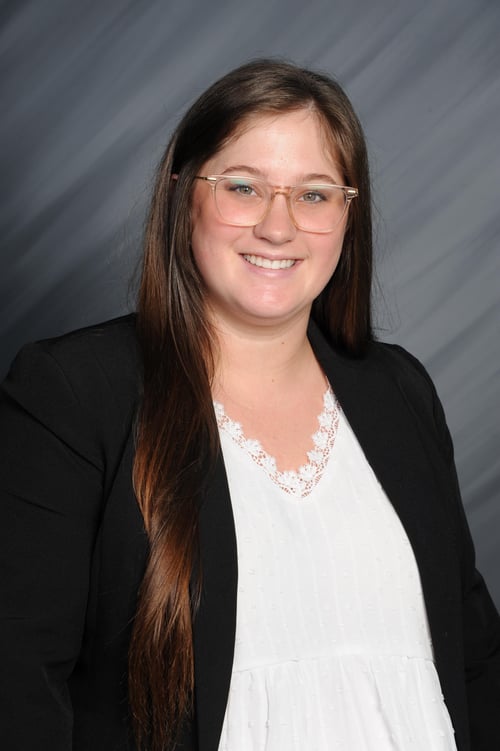COPD--It’ll Take Your Breath Away

When you think of November, what comes to mind? Some may say Thanksgiving, football, or that month where it’s almost socially acceptable for me to put up my Christmas decorations. Though all true, November is also COPD awareness month.
COPD stands for chronic obstructive pulmonary disease, and it refers to a group of diseases that cause airflow blockage and breathing-related problems. Emphysema and chronic bronchitis are two of the more common diseases that fall under the category of COPD. COPD is caused by long-term repeat damage to the lungs. In the United States, tobacco smoke, either first or second hand, is the most common risk factor for developing COPD. Other risk factors include occupational exposures to dusts, gases, and fumes, as well as chronic respiratory infections and genetics.
About 15 million Americans have been diagnosed with COPD, and around 5.4% of Texas residents have been told by a medical professional that they have COPD; so, it’s possible you may know someone with COPD. Common symptoms that people with COPD experience are chronic cough, chronic phlegm production, trouble taking a deep breath, wheezing, and shortness of breath while doing daily activities like walking to the mailbox, doing yard work, cleaning house, or going up stairs.
There are treatments and medications that help alleviate symptoms of COPD, but there is no definitive cure. In the United States, COPD ranges between the third and fourth leading cause of death in adults. The long-term repeat damage leads to permanent changes to the lungs to the point where the lungs can no longer produce healthy working lung tissue. Once an area of healthy lung tissue is gone, it’s gone for good! The best way to stop the progression of COPD is to stay away from the things that damage your lungs. Most people with COPD are long-time smokers; so, encouraging those people to quit smoking is important since this is the best thing they could do to slow or stop the progression of this disease. It’s never easy to quit cold turkey; so, starting by decreasing the amount you smoke daily, trying nicotine patches or gums, or finding a support group with other people who are trying to quit are good places to start. You can also ask your primary care health professional for medications to help you decrease nicotine cravings.
As we head into colder months, upper respiratory tract infections usually caused by viruses like the flu, RSV, and now COVID-19 are becoming more prevalent. People with COPD are at increased risk of infection since they have less healthy lung tissue that would be able to clear those infections easily. Common colds and viral infections can worsen the symptoms of COPD, and people can experience what is known as a COPD exacerbation. During exacerbations you can experience increased shortness of breath from baseline, increased wheezing, increased cough and sputum production, and increased fatigue. Mild exacerbations can be treated with your outpatient primary care health care professional, but sometimes symptoms can be so debilitating that you may require supplemental oxygen and hospitalization. If you have COPD and are having trouble breathing or catching your breath at rest, please call your primary care provider or 911 immediately.
Since COPD exacerbation can be serious and even life-threatening, it is highly recommended that everyone with COPD to receive the flu vaccine, pneumonia vaccine, and a full course of either the Pfizer, Moderna, or Johnson & Johnson vaccine against COVID-19. These vaccines do not 100% guarantee that you will never get the flu, pneumonia, or COVID-19, but they do significantly decrease your risk of having a severe infection that could result in hospitalizations and all the complications that go along with that. Please talk to your primary care health professional if you have any questions or concerns regarding any of these vaccines or boosters.
As we go into November thinking about good food, football, cooler weather, and now COPD, I hope that you have a safe holiday season. If you have any additional questions regarding COPD, please make sure to talk to any of our primary care providers here at Lone Star.
 Dr. Nieto is a resident physician who sees patients of all ages and provides obstetrical services at Lone Star Family Health Center, a non-profit 501©3 Federally Qualified Health Center operating facilities in Conroe, Spring, Willis, Grangerland, and Huntsville, and serving as home to a fully integrated Family Medicine Residency Program to increase the number of Family Medicine physicians for Texas and our community.
Dr. Nieto is a resident physician who sees patients of all ages and provides obstetrical services at Lone Star Family Health Center, a non-profit 501©3 Federally Qualified Health Center operating facilities in Conroe, Spring, Willis, Grangerland, and Huntsville, and serving as home to a fully integrated Family Medicine Residency Program to increase the number of Family Medicine physicians for Texas and our community.



